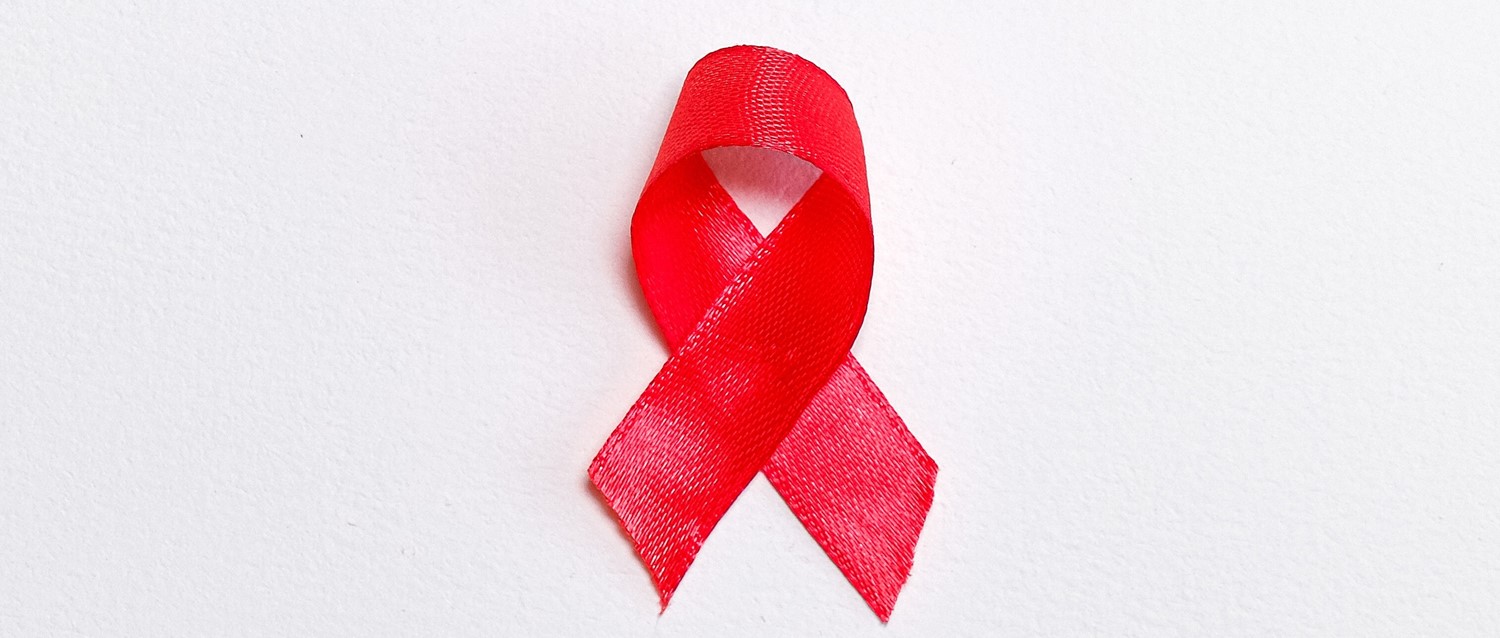
What is the difference between HIV and AIDS?
Peer reviewed by Dr Sarah Jarvis MBE, FRCGPLast updated by Lawrence HigginsLast updated 1 Dec 2022
Meets Patient’s editorial guidelines
- DownloadDownload
- Share
- Language
- Discussion
HIV and AIDS are frequently confused, and it's easily done, but they are two different diagnoses. However, they do go hand-in-hand. Thanks to advances in medicine, HIV and AIDS are no longer considered death sentences, but there is still great stigma and misinformation surrounding them. On World AIDS Day 2022, and every day, it's important we are clued up on the reality of HIV and AIDS, so we can support others and annihilate myths.
In this article:
Video picks for HIV and AIDS
What is HIV and what is AIDS?
Dr Kenny Win-Leung Siu, who works at specialist HIV hospital Mildmay, defines both HIV and AIDS in a simplified, understandable way.
"Human immunodeficiency virus (HIV) is the virus that attacks a person's immune system. Acquired immunodeficiency syndrome (AIDS) is a state of untreated HIV. This is where a person's immune system is unable to fight off illnesses that a healthy immune system would have defended against."
HIV is most often contracted by having sex with a person who is HIV positive without using a condom. The virus does not spread simply like the common cold. HIV spreads via bodily fluids, such as semen, blood, vaginal fluids, menstrual blood and breast milk.
Does HIV always develop into AIDS?
Back to contentsDr Win-Leung Siu explains how advances in medication, such as antiretroviral drugs (ARVs), now mean it is increasingly rare to develop AIDS despite having HIV.
He says that the portrayals of severely unwell patients with AIDS in movies from the 1980s are no longer reflective of reality. Even transmission rates of HIV have improved - in fact, there is no risk of transmission from a person having the right treatment.
The 'Undetectable=untransmittable' campaign sought to raise awareness of this advance. The aim of effective treatment for HIV is to lower levels of HIV in a person's blood. Below a certain level (200 copies/ml of blood measured), the person has what is referred to as an undetectable viral load. At this level, research has shown that they cannot pass on the virus through sexual contact.
"Medical improvements have meant that HIV is now just like many other chronic illnesses. As long as you take your medicine and look after yourself, you can live a normal lifespan.
"The number of people with AIDS is continuously decreasing. In 2017, of the estimated 101,600 people with HIV in the UK, there were 428 AIDS-related deaths. However, it is estimated that 248 of these deaths could have been prevented with an earlier diagnosis. This remains a big issue in the UK. However, deaths from AIDS-related illnesses have vastly declined, likely thanks to improved rapid testing and treatment," explains Dr Win-Leung Siu.
It isn't just the UK seeing a drop in AIDS-related deaths - the death rate is also declining worldwide. In 2020, there were 37.7 million people globally living with HIV. Of this number, 680,000 people died from AIDS-related illnesses.
Continue reading below
How are HIV and AIDS similar and how are they different?
Back to contentsAIDs is a consequence of untreated HIV. This means that not all people with HIV have or will get AIDS. AIDS is the most advanced stage of HIV.
HIV vs AIDS: the symptoms
A sign that you might have contracted HIV is feeling like you have the flu. The early signs of HIV include:
Feeling tired constantly.
A higher temperature than normal.
Rashes on the skin.
Swollen lymph nodes in the neck and groin area.
If you suspect you have HIV and you are showing the above symptoms, you should get tested.
Symptoms of AIDS
These include:
Rapid weight loss.
Gaps in memory.
Continued swelling in the lymph nodes.
Unexplained tiredness.
Diarrhoea that lasts for longer than a week.
Sores around the mouth, genitals or anus.
Blotches on the skin, particularly on the eyelids, inside the mouth or nose.
Why do people often confuse HIV and AIDS, and why is this harmful?
Back to contentsDr Win-Leung Siu explains that history plays a large part in misconceptions and confusion surrounding HIV and AIDS.
"When they first appeared in significant numbers in the 1970s-80s, there was very little treatment. If you were diagnosed with HIV, it was probable you would develop, and perhaps die from, AIDS. This led to the belief that HIV was inevitably going to result in early death. I think it's key to point out that, as with many illnesses, doctors would recognise the illness before they discover the cause. In this case, they were aware of AIDS but not so much the virus HIV. So, during the early days of diagnosis, doctors would recognise the illness we now call AIDs first before making the connection to HIV."
The misconceptions around the conditions often prevent those concerned about their health from getting tested. As long as there is shame attached to being HIV positive, cases will go undetected for longer than necessary. While society has progressed, there needs to be more education surrounding living with HIV, so people understand that it can be managed on a daily basis. Myths are still very prevalent, suggesting that being diagnosed with HIV is a death sentence, but that isn't the case anymore.
Continue reading below
How is HIV treated and what can happen if it goes untreated?
Back to contentsUnfortunately, there is still no absolute cure for HIV. However, medication is now available to suppress the virus to an extent where you can live a full life comparable with someone without HIV.
This medication can reduce or, as we've heard, completely eradicate your chances of spreading the virus.
Firstly, if you think you have been exposed to HIV, you can take post-exposure prophylaxis (PEP) medicine that can hugely reduce the chance of you becoming infected. This medication must be started within 72 of coming into contact with the virus and can be prescribed by A&E departments and sexual health clinics.
PEP involves taking HIV treatment every day for one month.
There is also PrEP, which stands for pre-exposure prophylaxis. If taken correctly, this daily pill can protect you from HIV. It's a combination of two drugs used to treat HIV and protects your negative HIV status. With this medication, you can have a far lower level of concern about a sexual partner being HIV positive.
PrEP only protects against HIV, not other STIs, so you still need to take other precautions. However, it is a good idea if you are HIV negative, want to have control of your sexual health and are having sexual encounters that put you at risk of being exposed to HIV.
If you are diagnosed with HIV after testing positive, you will be monitored with regular blood tests before starting the treatment process. Treatment can then be started at any point following diagnosis and you will be offered antiretroviral medicines to stop the virus reproducing in the body.
HIV can quickly become resistant to medication, so a combination of drugs is used to fight the infection. You might be able to get these drugs in a single pill, but might have to take four pills a day.
Many medications for HIV can be prescribed by your GP.
However, if you leave HIV untreated, you can develop AIDS and this may lead to death.
But how can a person's life change if HIV is treated?
Back to contents"It would not be an exaggeration to say ARVs, the treatment for HIV, save lives," admits Dr Win-Leung Siu.
Some studies have suggested that, if a person is diagnosed with HIV early, starts medication promptly and is adherent to medication, there's a chance they can have a longer lifespan compared to other people in the same demographics without HIV. There can be many contributing factors to this, not solely medication.
Why is education around HIV and AIDS important?
Back to contentsUnfortunately, there is still great stigma attached to the conditions, which we need to remove.
Dr Win-Leung Siu says tackling this stigma will encourage people who are worried to get tested without feeling ashamed.
"The earlier we diagnose, the earlier we can treat and the less chance the condition will spread. This allows for patients to live the longest, healthiest lives possible."
Where can you get tested for HIV and seek emotional support?
Back to contentsYou should consult your GP if you have concerns about your sexual health. You can also make an appointment at your local sexual health clinic to be tested for HIV.
Additionally, Dr Win-Leung Siu recommends contacting specific HIV organisations such as Terrence Higgins Trust and Positively UK for information and support regarding HIV and AIDS.
Patient picks for HIV and AIDS

Sexual health
What living with HIV is like today
HIV used to be seen as a terminal illness, but important medical improvements in recent decades have changed this. It's now possible for HIV-positive people to live a normal, healthy life with the right treatment.
by Léa Surugue

Sexual health
How to cope with an HIV diagnosis
People with HIV can live long, full, healthy lives with the right treatment and support. However, receiving a diagnosis of HIV can have a significant effect on someone's mental health - in part, due to misinformation and stigma.
by Lydia Smith
Continue reading below
Article history
The information on this page is peer reviewed by qualified clinicians.
1 Dec 2022 | Latest version
17 Nov 2021 | Originally published
Authored by:
Emily Jane Bashforth

Ask, share, connect.
Browse discussions, ask questions, and share experiences across hundreds of health topics.

Feeling unwell?
Assess your symptoms online for free
Sign up to the Patient newsletter
Your weekly dose of clear, trustworthy health advice - written to help you feel informed, confident and in control.
By subscribing you accept our Privacy Policy. You can unsubscribe at any time. We never sell your data.